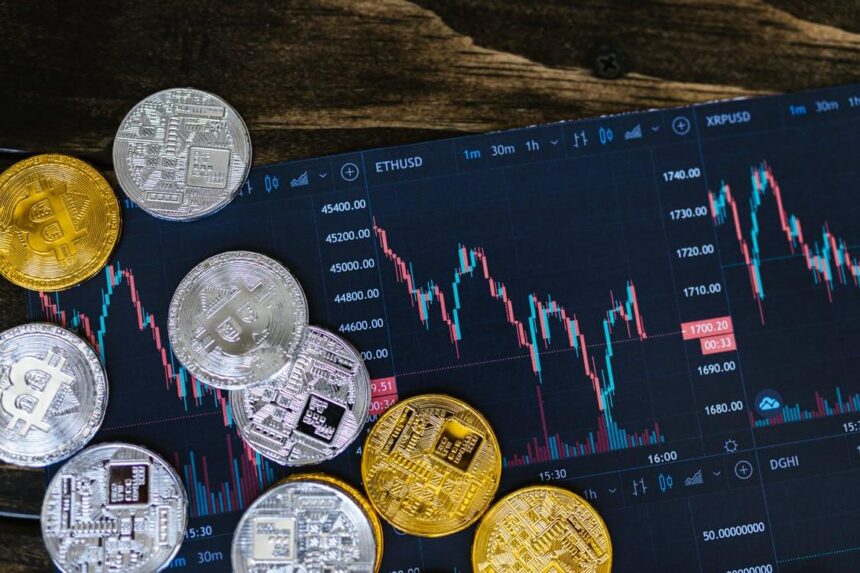Cryptocurrency Exchanges in Africa are growing in popularity as more people become interested in digital currencies. Cryptocurrency exchanges are online platforms to buy, sell, or digital trade currencies.
These exchanges allow investors to trade cryptocurrencies for other assets, such as fiat currencies (US dollars) or other cryptocurrencies. The exchanges typically charge a fee for each transaction.
The main benefit of cryptocurrency exchange is that it provides a convenient and easy way to convert your fiat currency into digital currency. In addition, the exchange rate on most exchanges is usually very competitive.
What are Cryptocurrency Exchanges?
Cryptocurrency exchanges in Africa are online platforms that act as intermediaries between buyers and sellers of digital assets.
Cryptocurrencies offer a way to conduct transactions anonymously; many believe they represent money’s future.
Many African exchanges offer various services, including storage in a digital wallet, spot, derivatives trading, margin trading, etc.
Some of the most popular exchanges in Africa are Binance, Huobi Global, Kraken, LocalBitcoins, and Paxful.
However, some risks are associated with using cryptocurrency exchanges, and it is crucial to understand them before you begin trading.
Top Cryptocurrency Exchanges in Africa
This is a question on the minds of many people looking to get involved in the cryptocurrency market.
Knowing which will offer the best experience can be challenging with many exchanges.
Here is a list of some of the best exchanges for trading cryptocurrencies in Africa:
1. Coinbase
Based in the US, Coinbase is one of the world’s most popular cryptocurrency exchanges.
It offers a user-friendly platform with various features for beginners and experienced traders. Coinbase supports several payment methods, including credit and debit cards, bank transfers, and PayPal.
2. Luno
Luno is a popular cryptocurrency exchange in Africa that trades various digital assets, including Bitcoin, Ethereum, XRP, and Litecoin.
The exchange was founded in 2013 and headquartered in London. Luno also has offices in South Africa, Nigeria, Ghana, and Kenya.
Luno has built up a sizeable African user base thanks to its easy-to-use platform and mobile app.
3. Valr
Valr is a South African cryptocurrency exchange that was founded in 2018. The platform enables trading in several digital assets, including Bitcoin, Ethereum, Litecoin, and Bitcoin Cash.
Valr also has a mobile app that allows users to trade on the go.
4. NairaEx
NairaEx is a Nigerian exchange that offers trade in Bitcoin, Ethereum, Litecoin, and other cryptocurrencies.
The company was founded in 2016 and had a user-friendly platform. NairaEx is one of the most popular exchanges in Africa.
NairaEx also has a mobile app available for Android and iOS devices.
5. BitPesa
BitPesa is a Kenya-based cryptocurrency exchange that allows users to trade in Bitcoin and Ethereum.
A mobile app for Android and iOS devices is available on the exchange. BitPesa also offers a merchant payment service that allows businesses to accept Bitcoin and other cryptocurrency payments.
6. Quidax
Quidax is a digital asset exchange platform based in Nigeria that allows trade in Bitcoin, Ethereum, Litecoin, Bitcoin Cash, and Ripple.
The company was founded in 2017 and had a user-friendly platform. Quidax also has a mobile app available for Android and iOS devices.
7. Binance
Binance is a global cryptocurrency exchange that supports trading many cryptocurrencies.
The exchange is based in Malta but has offices worldwide, including Kenya. Binance offers a mobile app for Android and iOS devices.
8. LocalBitcoins
LocalBitcoins is a peer-to-peer cryptocurrency exchange that allows users to buy and sell Bitcoin.
The exchange is available in most countries worldwide, including many African countries. LocalBitcoins offers a mobile app for Android and iOS devices.
9. Ovex
Ovex is a Bitcoin, Ethereum, Litecoin, and other digital asset exchange based in South Africa.
The business was established in 2017 and offered a user-friendly platform. Ovex also has an Android and iOS mobile app.
10. Paxful
Paxful is another peer-to-peer cryptocurrency exchange that allows users to buy and sell Bitcoin.
The exchange is available in over 190 countries, including many African countries. Paxful offers a mobile app for Android and iOS devices.
These are just some of the best cryptocurrency exchanges available in Africa.
Knowing the right fit for you can be challenging with many options.
It is essential to do your research and compare the features of each exchange before making a decision.
Risks associated with trading on a cryptocurrency exchange in Africa
There are several risks associated with trading on a cryptocurrency exchange in Africa. These include:
Volatility
The prices of digital currencies are highly volatile, and investors can lose a significant amount of money if they don’t know what they’re doing.
Lack of Regulation
Any government agency does not currently regulate cryptocurrency exchanges in Africa.
Investors are not protected if an exchange is hacked or the platform experiences other problems.
Security.
Cryptocurrency exchanges hold many digital currencies, making them a target for hackers.
In addition, investors’ accounts are also at risk if the exchange is not adequately secured.
Fraud.
There have been several cases of fraud on cryptocurrency exchanges in Africa. In one case, an exchange was found to be selling fake bitcoins.
In another case, an exchange was operating a Ponzi scheme. It is crucial to research any exchange before using it.
Lack of Liquidity.
Due to the low volume of trading on African exchanges, there can sometimes be a lack of liquidity.
This can make it difficult to buy or sell large amounts of cryptocurrencies when you want to.
High Fees
Exchanges may charge exorbitant fees, which might reduce your earnings. It’s critical to compare costs before selecting an exchange.
Geographic Restrictions
Some exchanges are only available in certain countries. This can make it difficult to trade if you are not in the correct region.
Customer Service.
Many exchanges have poor customer service, making getting help if you have a problem difficult.
Deposit and Withdrawal Limits
Exchanges may impose restrictions on the amount you can deposit or withdraw. It might be challenging to trade substantial quantities of cryptocurrencies due to this.
Counterparty Risk
When you trade on an exchange, you trust the other party to fulfil their side of the deal. If they don’t, you could lose money.
It’s worth pointing out that no African government agency has authority over cryptocurrency exchanges.
This means a higher risk of fraud and theft on these platforms. You should only trade on an exchange if you are comfortable with these risks.
Benefits of using a cryptocurrency exchange in Africa
Despite the risks, there are also several benefits of using a cryptocurrency exchange in Africa. These include:
Access to a broader range of assets: Cryptocurrency exchanges offer a more comprehensive range of investments than traditional exchanges. You will have more opportunities to trade and invest in different digital currencies.
Lower fees: Cryptocurrency exchanges often charge lower costs than traditional exchanges. This can save you money when you are trading.
More anonymity: Cryptocurrency exchanges offer more anonymity than traditional exchanges. This means your personal information will be less likely to be stolen or hacked.
Better customer service: Many cryptocurrency exchanges have better customer service than traditional exchanges. This means you can get help more quickly if you have a problem.
Cryptocurrency exchanges in Africa come with both risks and benefits. You should carefully consider these before trading on one of these platforms.
If you are comfortable with the risks, you may find that the benefits outweigh them.
However, if you are uncomfortable with the risks, you should avoid trading on these exchanges.
How to Choose a Cryptocurrency Exchange in Africa
There are several factors to consider when choosing a cryptocurrency exchange in Africa. These include:
- Location: Many exchanges only operate in certain countries. Make sure the exchange you choose works in your country.
- Fees: Exchanges typically charge fees for each transaction. These fees can vary significantly between exchanges, so compare them before trading.
- Payment Methods: Some exchanges only accept specific payment methods, such as bank transfers or credit cards. Ensure the exchange you choose agrees with the payment method you want to use.
- Coin Availability: Not all exchanges offer the same coins. If you want to trade a specific currency, ensure the exchange you choose offers it.
- Security: Exchange security is crucial, as exchanges hold a large amount of digital currency. Ensure the exchange you choose has a good reputation and has implemented security measures to protect its platform and users’ accounts.
- Customer Service: If you have a problem, getting help from the exchange is crucial. Make sure the exchange you choose has good customer service.
It would be best to read reviews of different exchanges before deciding which one to use.
Once you’ve chosen an exchange, take security precautions to protect your account. These can include enabling two-factor authentication and using a strong password.
By researching and understanding the risks involved, you can find an exchange that best suits your needs and trade confidently.
How to start trading cryptocurrencies on an African exchange
Cryptocurrency exchanges in Africa offer a great way to trade digital currencies. However, you should know a few things before you start trading cryptocurrencies.
Here are some tips to help you get started:
- Please research: Understanding the risks involved in trading cryptocurrencies is essential. Be sure to read up on the topic before you begin.
- Choose an exchange: There are many exchanges to choose from. Before deciding which one to use, compare each exchange’s fees, payment methods, coin availability, and security.
- Create an account: Once you’ve chosen an exchange, you must create one. Use a strong password and enable two-factor authentication to protect your account.
- Deposit funds: Most exchanges will allow you to deposit funds using a bank transfer or credit card. Once you’ve deposited funds, you can start trading.
- Start trading: Now you’re ready to start trading cryptocurrencies. Pay attention to the market and only deal with funds you can afford to lose.
Following these tips, you can confidently start trading cryptocurrencies on an African exchange.
Frequently asked questions
Which countries in Africa are using cryptocurrency?
While cryptocurrency in Africa is not as widespread as in other continents, there are still several countries where crypto trading is available. These include:
- Kenya.
- South Africa.
- Cameroon
- Nigeria.
- Ghana.
- Senegal
- Zimbabwe.
- Côte d’Ivoire
- Botswana.
These countries have active communities and exchanges that allow users to buy and sell digital assets.
What types of exchanges are available in Africa?
Two main types of exchanges are available in Africa- centralized and decentralized.
Centralized exchanges are typically more popular as they are easier to use and offer more features. Decentralized exchanges are also available but may be less user-friendly.
What is the future of cryptocurrency in Africa?
The future of cryptocurrency in Africa is uncertain, but its growth potential is. The continent could become a significant player in the global crypto market with more exchanges and users.
How do I choose a cryptocurrency exchange in Africa?
When choosing a cryptocurrency exchange in Africa, it is crucial to consider the platform’s fees, features, and security. You should also ensure the exchange supports the coins you want to trade.
Which crypto exchanges work in South Africa?:
Some of the most popular cryptocurrency exchanges in South Africa include Luno, Ovex, and VALR.
The Bottom Line
Cryptocurrency exchanges are growing in Africa as more people become interested in digital currencies.
This could be an excellent opportunity for African countries to advance in the global economy.
However, some challenges, such as security and regulation, still need to be addressed. Cryptocurrency exchanges have the potential to bring many benefits to Africa, and we look forward to seeing how they develop in the coming years.













